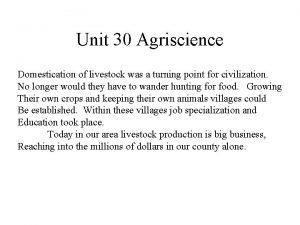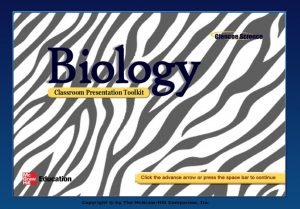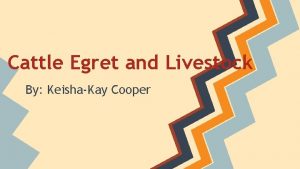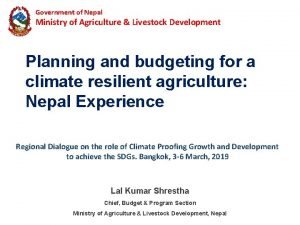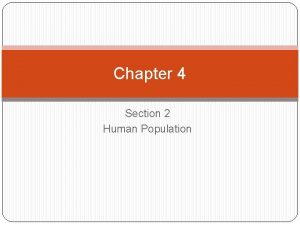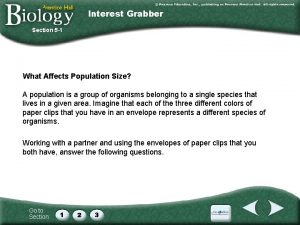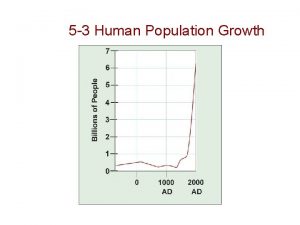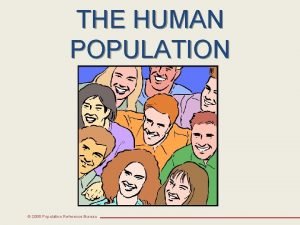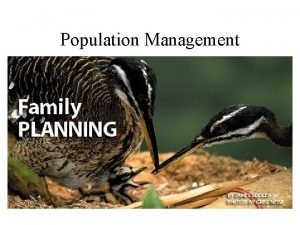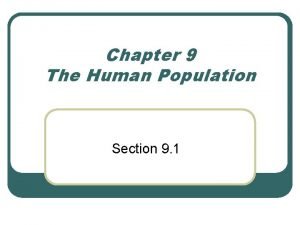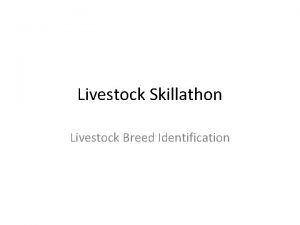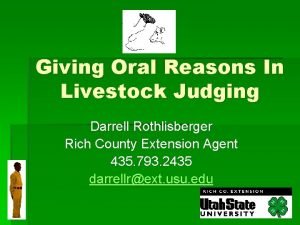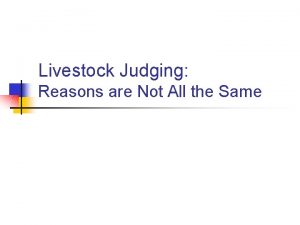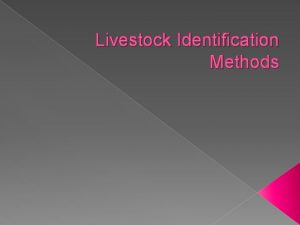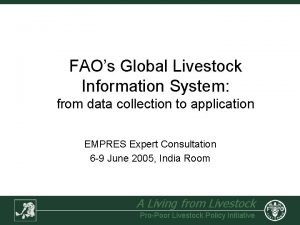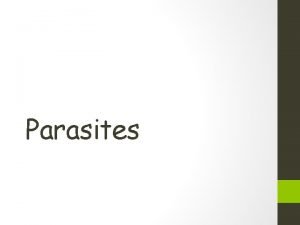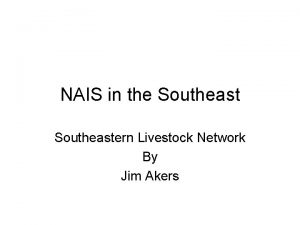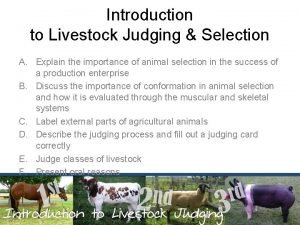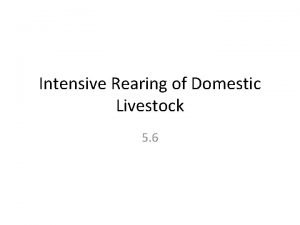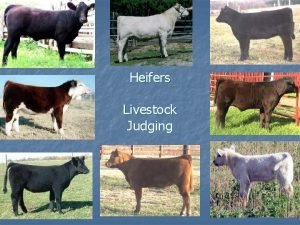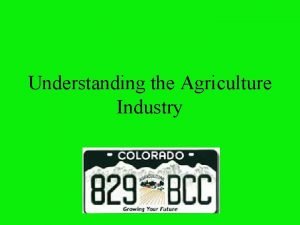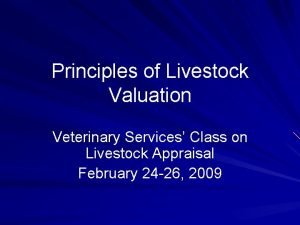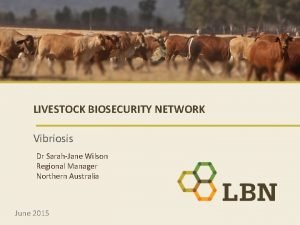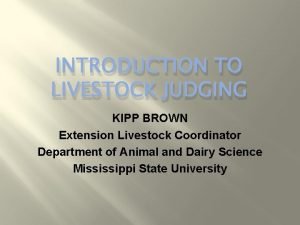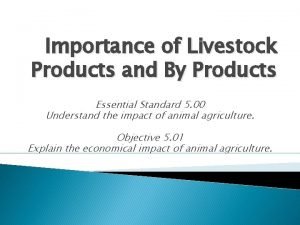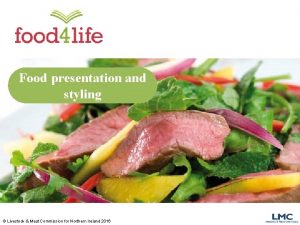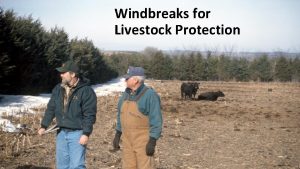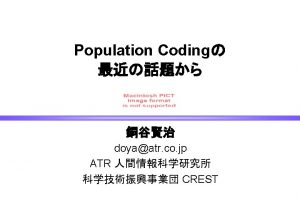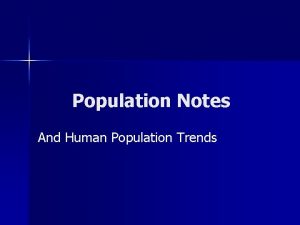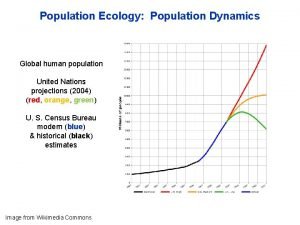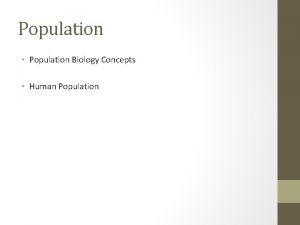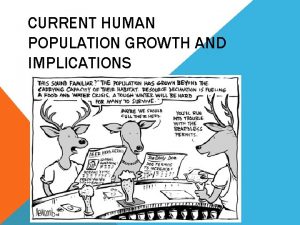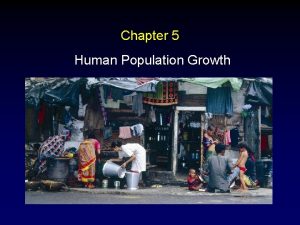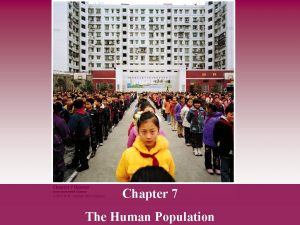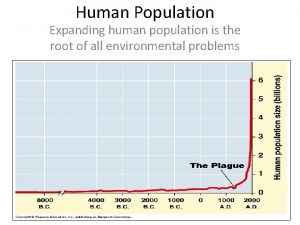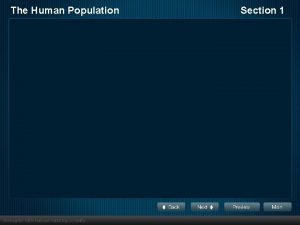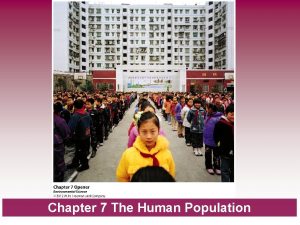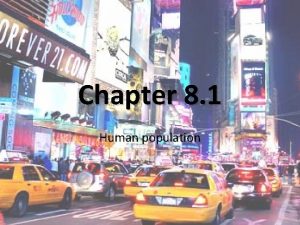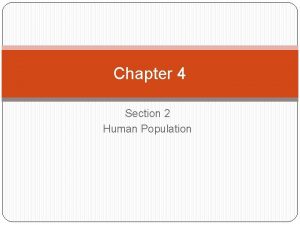Livestock Management Cattles Livestock and management Human population



































- Slides: 35

Livestock Management: Cattles.

Livestock and management • Human population is directly linked to the natural resources of a country. • Animal husbandry and dairying have been mainly rural based , generating employment and revenue among the rural people. • ICAR, State Agricultural Universities and various Research Organizations to improve the livestock and its management. • Intensive cross breeding programmed in cattle has led to the high yielding milk animals.

Dairy Technology • Application of science for the manufacture of milk and milk products. • Dairy technology made rapid growth in the later half of the 19 th century. • Artificial feeds and nutrient foods are manufactured to improve the milk yield of cows. • Breeding techniques and applications of biotechnology in stock improvement programme of cattle have tremendously increased the production of new breeds with milking capacities.

Important cattle breeds and their characteristics Cattles belong to the genus Bos (ruminant quadrepeds ) Cattle Bos indicus Bos taurus Bos bubalus

Cattles are classified under three groups based on the purpose they serve to man. They are dairy breeds, dual purpose breeds and draught breeds.

What is a breed ? A breed is a group of animals of a species which has for a long period been bred among themselves. The members of the breed have closely resembling characters and these characters are hereditarily transmissible to young ones.

Cattle Dairy purpose Dual purpose Draught purpose Cows are high milk yielder with extended lactation Cows are meant for both milk and draught Draught animals and poor milk yielder 1. Sahiwal 1. Hariana 2. Sindhi 2. Ongole 3. Umblachery. 3. Tharparker 4. Karan swiss 4. Kankrej 1. Amritmahal 2. Kangayam 3. Malvi 4. Siri. 5. Hallikar.

Cows are high milk yielders with extended lactation periods. The bullocks are poor draught qualities. These cattle are well built with strong limbs. The cows in domestic usage for milk are non-descriptive.

Sindhi (red sindhi) • Medium size and compact body. • Thick horns emerging laterally and ending in blunt points. • They have intelligent facial expression. • Deep dark red colour. • Males are darker than the cow. • They have hump and the udder is large with medium sized teats.


Sindhi (red sindhi) • The animals are docile and quite. • Bullocks are steady workers, suited for road and field work. • Sindhi cows are hardy and have high degree of resistant to heat and ticks.

Gir The breed originated in the Gir forest of South Kathiawar. Impure forms of gir breeds are found in Baroda and some parts of Maharasthra.

Gir • The colour is not always entire. • It is usually red, black and red, red and white with red spots. • The body is well built with clear cut lines. • Ears are long like a leaf. • Tail is long and whip like. • Legs are long and well built. • Udder is large with matching teats. • Bullocks are heavy, powerful and good for draught.


Ø This breed of cattle are meant for both milk yield and draught works. Ø The cows are fairly good milkers and the bullocks are sturdy and are useful in draught works like ploughing the field, transport, cart pulling etc.

Ongole tract of Andrapradesh Guntur, Narasaraopet, Venukonda, Kandukur Taluks of Nellore.

Ongole • The breed is a larger form. • Matured male weighs about 700 Kg and female weighs about 400 Kg. • Ongole breed is usually white in color with grey marking. • Males are dark at extremities. • Hump is well developed and erect. • The horns are stumpy and they grow outwards and inwards. • Bullocks are powerful and suitable for cart and road work but are not fast.

These breeds are exclusively meant for pulling carts, ploughing fields etc. They are well built and the skin is well stretched. The bulls are used for draught works. The cows are poor milkers. Important Indian draught breeds are Amrithamahal, Kangayam, Malvi, Hallikar etc.

It originated from kangayam divisions of Dharapuri taluk of Coimbatore district in Tamil nadu. The breed is also found in Udumalpet, Palladam, Pollachi and in other parts of South India.

Kangayam • The cattle of this breed are of moderate size and the colour of the body is white or grey with black markings. • The horns are strong and curved upwards and onwards. • The head is short with prominent fore head. • Neck is shorter and thick and the ears are smaller and pointed. • They have moderate sized hump, wide muzzle, strong limbs, fine skin and a fine tail. • The udder is medium sized with small teats. • The bulls are excellent type for hard work.

Kangayam

Hallikar found in the south Indian states, predominantly in Karnataka. Hassan and Tumkur regions are the home places of this breed.

Hallikar • Body is dark grey in colour, some times almost black. • The animals are of medium size. • The head is usually long with a bulging forehead and a prominent furrow in the middle. • The face is long with small ears. • The long horns emerge out, slant backwards in a graceful sweep and then curve upwards to terminate in a sharp point.

The hump is moderately developed. The udder is medium sized with small teats. The hallikar bullocks are draught breeds. They are used for heavy ploughing, transport and other field works.

• Many milk yielding breeds of cattle are imported and reared in India. • The exotic breeds are successfully crossed with indigenous breeds to obtain cross breeds, which have sufficiently good desirable character. • European breeds are the first kind of exotic breeds introduced in India about 90 years back. • Important ones are short horns Ayreshire, Jersey, Brown swiss, Holstein Friesean, Gunernsy and Red Dane.


• Jersy is one of the oldest dairy breed. • It originated from Jersey island adaptable to wide range of climatic conditions and heat. • The colour of the breed ranges from white to dark grey, and it is broken and found as patches. • Jerseys are nervous and sensitive animals. • Jersey have good udders with large teats. • The lactational yield is 4950 Kg with milk fat 5%.

• The milk has a chracteristic yellow colour because of high carotene content. • The bulls are vicious than other than breed. • Cross breeding of Jersey and indigenous Sindhi and Hariyana produced excellent cross breeds with more than 2000 Kg of milk yield in one lactation.

Name of the breed Maximum Milk yield per Lactation Sindhi Gir Ongole Kangayam Hallikar jersey 5443 Kg 3715 Kg 1700 to 3500 Kg 666 kg Poor milkers 4950 Kg

Dairy purpose

Dual purpose

Malvi Draught purpose Kangayam

Kankrej

End

Our sincere thanks to Dr. SREEKUMAR, Dr. PONNUVEL & Dr. S. VENUGOPAL. Dept. of L. P. M. , Rajeev Gandhi College of Veterinary and Animal Sciences, Pondicherry.
 Livestock breed identification swine - vocabulary
Livestock breed identification swine - vocabulary Chapter test a chapter 4 population ecology answer key
Chapter test a chapter 4 population ecology answer key Section 1 population dynamics
Section 1 population dynamics Population ecology section 1 population dynamics
Population ecology section 1 population dynamics Chapter 4 population ecology section 1 population dynamics
Chapter 4 population ecology section 1 population dynamics Livestock risk management brokers near me
Livestock risk management brokers near me Cattle egrets and livestock
Cattle egrets and livestock Ministry of agriculture and livestock development
Ministry of agriculture and livestock development Chapter 4 section 2 human population answer key
Chapter 4 section 2 human population answer key Section 1 population dynamics answer key
Section 1 population dynamics answer key Section 5-3 human population growth
Section 5-3 human population growth Section 5-3 human population growth
Section 5-3 human population growth Human population
Human population Famous manifesting generators
Famous manifesting generators Baby bust definition ap human geography
Baby bust definition ap human geography Av
Av Chapter 9 the human population section 1
Chapter 9 the human population section 1 Livestock breed identification swine assessment
Livestock breed identification swine assessment Livestock judging transition terms
Livestock judging transition terms Livestock judging reasons
Livestock judging reasons Animal kingdom taxonomy chart
Animal kingdom taxonomy chart Livestock identification methods
Livestock identification methods Livestock information system
Livestock information system Parasites of livestock - vocabulary
Parasites of livestock - vocabulary Livestock network
Livestock network Livestock judging card
Livestock judging card Domestic livestock
Domestic livestock Livestock judging basics
Livestock judging basics Colorado livestock
Colorado livestock Livestock valuation methods
Livestock valuation methods Livestock biosecurity network
Livestock biosecurity network Judging 101
Judging 101 Livestock judging basics
Livestock judging basics Livestock breed identification swine - vocabulary
Livestock breed identification swine - vocabulary Livestock meat commission
Livestock meat commission Human needs and human development
Human needs and human development
